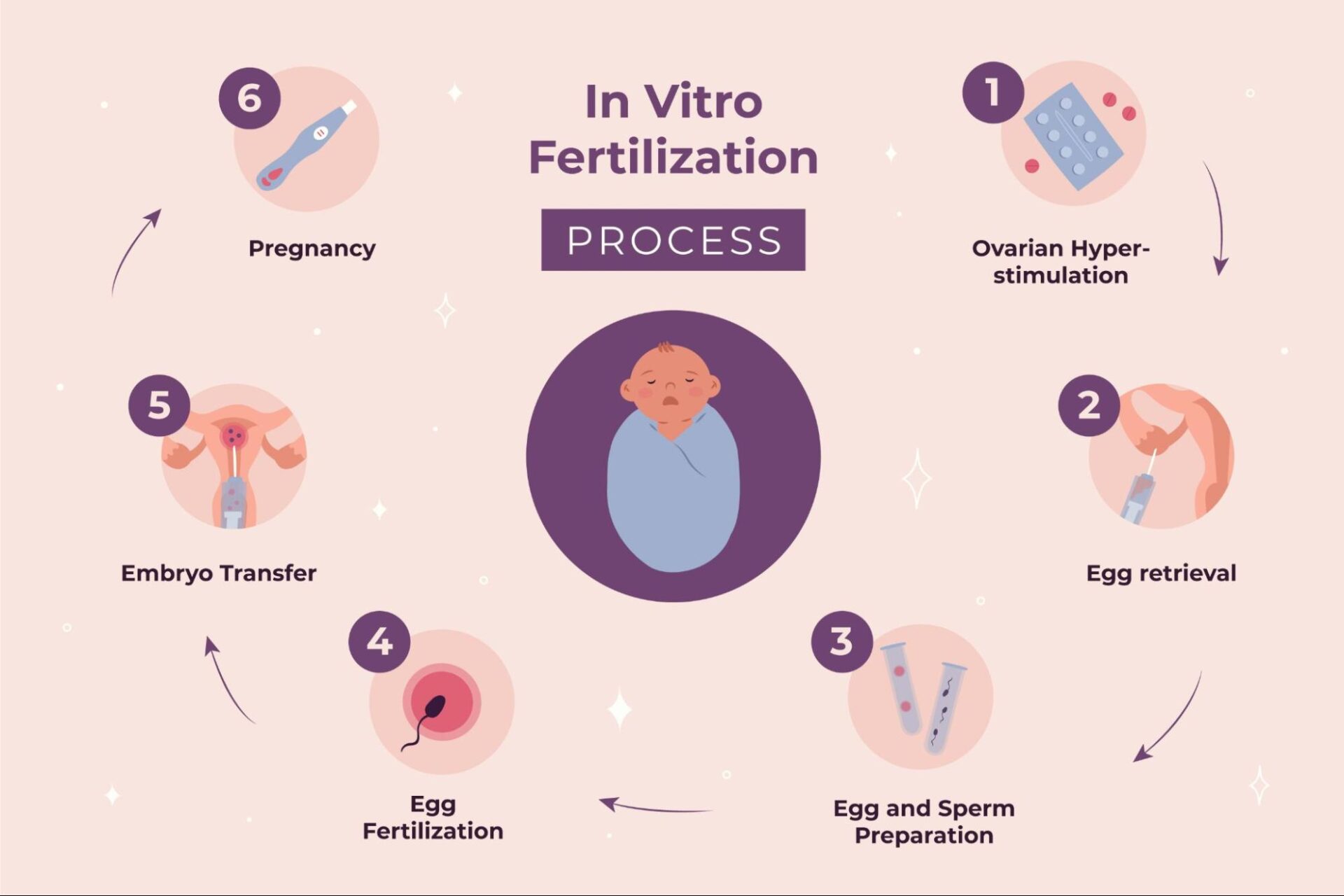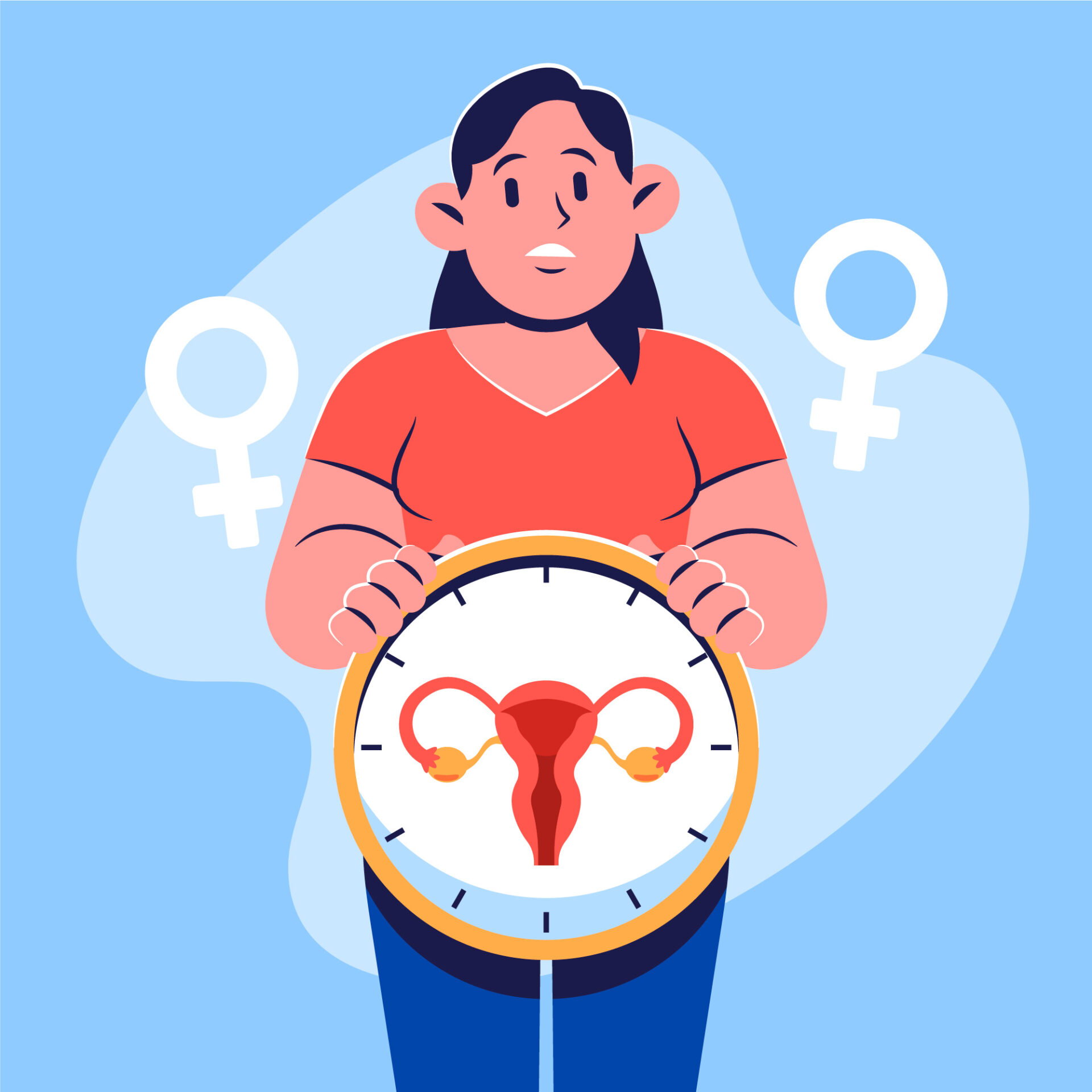HIGHLIGHTS
20 December 2020
5 yoga poses for couples to Enhance your relationship with your partner, level up your happiness in bed.
READ MORE20 December 2020
7 the procedure takes care of yourself and the wife before collecting eggs-collecting sperm.
READ MORE20 December 2020
Protein, a key nutrient of a woman, preparation for pregnancy- preparation for an egg collection.
READ MORE
Why Is It Important for a Health Check Up for Both Male and Female Before Getting Pregnant?
READ MORE
Destination IVF: Why Bangkok is a Premier Choice for International Patients Seeking Fertility Treatment
READ MOREWhat is IVF?
 30 May 2023
30 May 2023

IVF stands for in vitro fertilisation. In this context, in vitro means the process takes place outside the body. Instead, fertilisation takes place under controlled conditions in a test tube or similar.
The IVF process involves extracting semen and ova (eggs) and introducing them so fertilisation takes place outside of the body. The hopeful mother is also usually given medication that encourages ovulation, while she will also be prescribed various medications throughout the process.
Once an egg has been fertilised, it’s then left to mature for a few days to mature before the embryo transfer takes place. Once the egg has been inserted into the womb, the embryo will be allowed to develop until, hopefully, a healthy baby arrives.
However, while IVF has given countless couples the chance to have their own babies, it doesn’t work for everybody. You should also prepare for several attempts before you are successful, if at all.
Many people around the world dream of becoming a parent one day. Most couples are fortunate enough to have little or no difficulty conceiving a baby, letting them fulfil their dreams.
However, male and female reproductive systems are complex and there are numerous conditions that can affect an individual’s fertility. This means that some couples are unable to have children through traditional conception methods (sexual intercourse). The good news is that IVF has helped countless otherwise infertile couples to have the family they’ve always dreamt of.
Potential Causes of Infertility
As mentioned, there are numerous potential reasons why somebody may have difficulty getting pregnant. Some of the most common reasons include the following:
- Uterine Fibroids: Uterine fibroids are benign tumours located in the uterus. They are reasonably common and will usually cause no issues, but they can lead to infertility in some cases.
- Damage to the Fallopian Tubes: Eggs travel from the ovary where they develop, and then travel to the uterus via the fallopian tubes. If the fallopian tubes are damaged or blocked in some way, it may leave the patient infertile.
- Endometriosis: Endometriosis is a condition where the lining of the uterus can begin to grow outside of the uterus itself. This can adversely affect the reproductive system, potentially leading to infertility.
- Poor Sperm Health. Some men will produce insufficient quantities of sperm, or sperm that is not strong enough for a successful outcome. In some cases, this can be resolved with lifestyle changes or addressing underlying medical issues. IVF is a fairly popular option in cases of poor sperm health.
- Medication: Some medications, such as certain cancer treatments can leave the patient infertile. Not only that but there’s also a chance that certain medications will be harmful to the baby. As such, it’s best to take professional advice if you’re thinking about IVF while on medication.
- Sterilisation: Some people will undergo sterilisation surgery to help prevent unwanted pregnancies. However, people change over time and some sterilised patients might eventually decide they want a child. Reversing the sterilisation treatment is an option in many cases, while IVF can also help.
- Genetic Disorders: Some people will have genetic conditions that prevent them from having children. In some cases, genetic conditions can leave a fertile couple reluctant to have a child lest they inherit the condition also. In such cases, IVF treatment can help select healthy embryos to be re-inserted into the womb.
- Unexplained: In some instances, professionals can find no underlying reason for infertility. Eggs and sperm can both be healthy with no apparent barriers or conditions preventing fertilisation and development of an egg, IVF is a strong candidate for such cases as it can help the couple bypass whatever is preventing them from falling pregnant.
Is IVF Procedure Painful?
IVF treatment is not painful although some patients may feel some discomfort. Injections are involved which can be difficult for people who are afraid of needles. Necessary procedures like egg retrieval can leave some soreness, but the procedure is usually carried out under a general anaesthetic so any pain is limited.
If at any point you do experience pain then contact a doctor, especially if it is severe. Such pain could be a sign of a complication that needs to be addressed as quickly as possible for the health of the mother and baby. You should also contact your doctor if you feel as though something is not right.

Can You Choose Gender With IVF?
Yes, you can choose gender with IVF. Pre implantation genetic diagnosis can help experts select embryos with male or female chromosomes. The gender selection process is 100% accurate provided all procedures have been followed.
There are many reasons why a couple might want to choose the gender of their child. For example, a couple might already have two girls and want a boy for some balance. In such cases, the couple might turn to IVF so they can choose the gender of their next child.

How Long Does IVF Take to Get Pregnant?
The IVF cycle takes approximately 4 weeks – the same as the natural female human reproductive cycle. However, the process will also involve a fertility checkup, consultation, and testing. These steps will potentially cause the process to take longer.
And don’t forget that IVF treatment is often not successful the first time, although you can try again however many times you like. It is not uncommon for a patient to fall pregnant after several attempts.
How Do They Collect Sperm For IVF?
Sperm is usually collected by asking the male partner to provide a sample retrieved through masturbation. The sample is kept in a secure container and can be frozen for months/years without losing potency.
However, retrieving sperm through masturbation is not always possible. For example, the patient may already have undergone a vasectomy which means there will be no sperm in the patient’s ejaculate. In such cases, the sperm can be removed directly from the testes.
The most common method of retrieving sperm from the testes is testicular sperm aspiration (TESA). The process involves inserting a needle into the testicles which is then used to draw out some of the sperm. The process is performed under a local anaesthetic to prevent the patient feeling pain. In some cases, the TESA method may not be able to extract enough sperm and a biopsy will be required.
Do You Use Your Own Sperm For IVF?
In most cases, the couple will use the male partner’s sperm for fertilisation, but this is not always possible. For example, many single women might want to bring up a child themselves, so they will need to find a source. In most cases, the sperm will be given by an anonymous donor, or the patient may have made arrangements with a donor known to her.
What Are the Disadvantages Of IVF?
IVF has helped countless people fulfil their dreams of starting a family, but that does not mean to say it’s without its disadvantages. The good news is that these disadvantages are not usually dangerous, but it’s best to be aware of the risks regardless.
Here’s a brief look at some of the disadvantages associated with IVF:
- Multiple Pregnancies: Many IVF clinics will implant more than one embryo into the womb to increase the chances of success. While this will clearly boost the chances of a desired outcome, it also exposes the mother to the risk of falling pregnant with multiple children. While the chance of twins or triplets will sound great to some, it’s far from ideal for others.
- Ectopic Pregnancy: An ectopic pregnancy is a potentially dangerous condition that means the egg has implanted outside of the uterus. In most cases, the egg will settle in the fallopian tube instead and continue to develop. While IVF increases the likelihood of an ectopic pregnancy, the chances are still low and the embryo can be aborted safely.
- Stress: IVF is potentially very stressful, with concerns over how successful or otherwise the process is likely to be. Plus, of course, there’s the added stress of potentially becoming a parent. As such, the more support you get from your partner and others around you the better.
- Procedural Complications: Surgeons that carry out IVF procedures are highly skilled practitioners that have undergone extensive training. However, they are only human and even the most skilled practitioner can make errors. Such errors can lead to tears and similar damage to the delicate internal tissues. Thankfully, such complications are relatively easy to rectify and the vast majority of cases pose no risk.
- Cost: Unfortunately for many, IVF is not a cheap procedure. The process requires the expertise and experience of highly trained professionals equipped with the latest technology. The process can become even more costly when you take into account it often takes multiple attempts. Some might be tempted to look for cheap options, but this is unwise because using genuine professionals is important for your safety.
What is The Success Rate of IVF?
How likely you will fall pregnant with help from IVF depends on numerous factors, with age being one of the most impactful. According to the NHS, women under 35 will see a success rate of approximately 32%, and this number decreases to just 4% for women aged 44 and over.
These statistics will vary from source to source, but they are improving overall as newer and better technology and procedures are developed. Bear in mind also that everybody is different so your chances of success might be considerably higher or lower than the averages.
Give Yourself the Best Chance
One of the best ways to boost your chances of successful IVF treatment is to maintain good physical and mental health leading up to and during the process. This doesn’t necessarily mean keeping to a strict diet of healthy foods only but eating a balanced diet that offers all the nutrition you need.
Mild exercise will also help for people who are otherwise inactive, while fitness fanatics might need to adjust their regimes so they don’t overdo it. Avoiding alcohol and caffeine is also highly recommended, and you should also limit your caffeine intake. If you’re unsure of what you can and cannot do, it’s best to speak with a professional to be sure.
Can I Get Pregnant Naturally After IVF?
Yes, you can fall pregnant naturally after receiving IVF treatment. The treatment has no permanent effect on your reproductive system so everything should be working as expected. Undergoing the procedure might even have led to underlying causes being addressed, thus increasing your chances of falling pregnant naturally after IVF.
However, the reason most people choose IVF in the first place is because they’re having difficulty falling pregnant naturally. As such, the statistics would likely show a small number of people falling pregnant naturally after IVF, but that doesn’t mean IVF is to blame.
What Happens to Your Body After Failed IVF Treatment?
A failed IVF treatment can have a deep impact on your mind and body. Hormone levels can be out of balance while the patient is already likely upset at the failure to conceive. The body can also be exhausted physically, while patients can also experience a range of other symptoms, including:
- Fatigue: An unsuccessful IVF treatment can be draining on the body, potentially leading to fatigue. Many patients will need a period of rest to recover their strength.
- Headaches: Some patients will experience headaches after unsuccessful IVF treatment. You should speak with a doctor if these headaches become severe.
- Insomnia: Insomnia is a relatively common complaint. A variety of remedies are available that will help most people get a good night’s sleep.
- Anxiety or Depression: Anxiety and depression are other symptoms experienced by some patients. Such symptoms can be dangerous, making it a good idea to speak with a professional as soon as you recognize the symptoms.
Summary
Overall, IVF is a relatively straightforward procedure, but that doesn’t mean it can’t be stressful. Regardless, the procedure is very safe provided you go to professionals, and you can try as many times as you like.
If you have any questions regarding IVF then get in touch with the team at the Bangkok Central Clinic IVF & Wellness. We are a highly respected fertility clinic in Thailand with a proud history of getting results for our clients.
HIGHLIGHTS
20 December 2020
5 yoga poses for couples to Enhance your relationship with your partner, level up your happiness in bed.
READ MORE20 December 2020
7 the procedure takes care of yourself and the wife before collecting eggs-collecting sperm.
READ MORE20 December 2020
Protein, a key nutrient of a woman, preparation for pregnancy- preparation for an egg collection.
READ MORE
Why Is It Important for a Health Check Up for Both Male and Female Before Getting Pregnant?
READ MORE


















